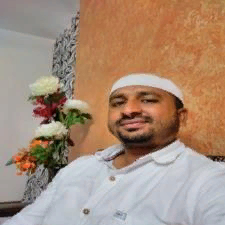
M.Mahaboob Basha
Work place: Department of ECE, S.V.R Engineering College, Nandyal, India.
E-mail: mmehboobbasha@gmail.com
Website:
Research Interests: Image Processing, Image Manipulation, Image Compression, Computer Architecture and Organization
Biography
Mahaboob Basha Mohammed has obtained B.Tech degree in Electronics and Communication Engineering from J.N.T.U University, Hyderabad, INDIA in the year 2001 and M.Tech degree in Communication and signal processing from S.K. University, Anantapuramu, INDIA in the year 2006. Presently working as a associate professor and Head of the Department of Electronics and Communication Engineering at SVR Engineering College, Nandyal, INDIA. Published 15 journals in National and International level. Professional Experience in teaching field is 15 Years. He is currently working with Ph.D in the area of “Low Power VLSI Design” from JNTUA university, Anantapuramu, INDIA . Interesting area of research includes Signal processing , high performance VLSI circuits and Image processing.
Author Articles
Design of Near Threshold 10T- Full Subtractor Circuit for Energy Efficient Signal Processing Applications
By M.Mahaboob Basha K.Venkata Ramanaiah P. Ramana Reddy
DOI: https://doi.org/10.5815/ijigsp.2017.12.03, Pub. Date: 8 Dec. 2017
In recent years, near threshold computing is becoming a promising solution to achieve minimum energy consumption. In this paper, the Dynamic Threshold body MOS (DTMOS) technique is assessed in the context of 10T full subtractor circuit designed to operate in the near threshold region. The performance parameters – Energy, power, area, delay, and EDP were computed and compared with the conventional CMOS (C-CMOS) Full subtractor. The simulations were performed using cadence 90 nm technology with Ultra Low Voltage (ULV) of 0.3V. The results have been shown that the proposed 10T full subtractor circuit with DTMOS scheme achieves more than 18% savings in delay, 26% savings in energy consumption and 39% savings in EDP in comparison with the conventional CMOS configuration and other hybrid counterparts.
[...] Read more.Other Articles
Subscribe to receive issue release notifications and newsletters from MECS Press journals